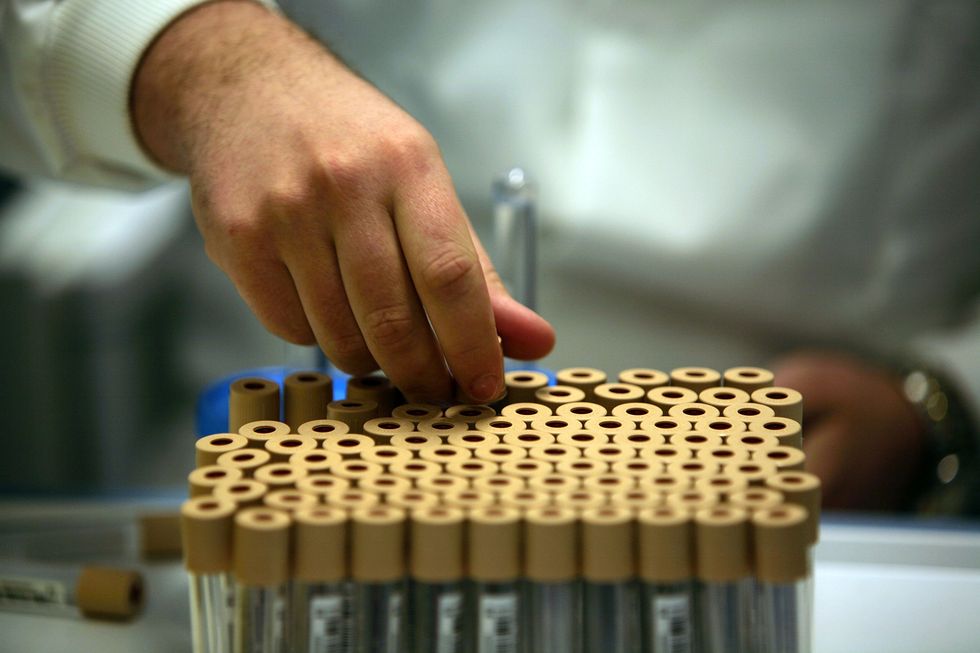Hot water bottle. Painkillers. Migraines. Mood swings.
Any woman who has experienced the uncomfortable and often excruciating pain of premenstrual tension (PMT) will be well accustomed to its unwelcomed symptoms. It's reported that a shocking 80 per cent of women complain of irritability, depression and anxiety in the days leading up to their period.
For years, it has been widely thought that fluctuations in mood during the menstrual cycle resulted from chemical imbalances in the brain, but new research suggests that the change in hormones before a period drastically alters how genes function.
Yes, your actual DNA.
Dr David Goldman, of the National Institutes for Health (NIH) who carried out the research with a team of scientists told the Telegraph: 'This is a big moment for women's health, because it establishes that women have an intrinsic difference in their molecular apparatus for response to sex hormones - not just emotional behaviors they should be able to voluntarily control'.
In other words, we actually cannot be blamed for our mood swings, some of us are just not built to be able to control them during our periods.
To test the impact of sensitivity to surges of hormones on cells, the researchers studied white blood cells (because they're quite similar to brain cells) from female participants who suffered from severe PMT and compared their findings to those of women who don't suffer symptoms.
The researchers found that despite the women who suffer from PMT exhibited normal levels of the hormones oestrogen and progesterone, the way their bodies reacted to the chemicals differed dramatically from those who don't suffer menstrual cycle symptoms.
In PMT sufferers, a set of genes – referred to as the ESC/E(Z) complex – resulted in some genes becoming quiet instead of active when exposed to higher levels of oestrogen.
Meanwhile, genes that should have been deactivated became more energetic when exposed to progesterone.
In layman's terms, the menstrual cycle was totally messing up how the genes worked among PMT sufferers.
Dr Peter Schmidt, from the NIH's National Institute of Mental Health told the publication: 'For the first time, we now have cellular evidence of abnormal signaling in cells derived from women with [severe PMT], and a plausible biological cause for their abnormal behavioral sensitivity to oestrogen and progesterone.
'Learning more about the role of this gene complex holds hope for improved treatment of such prevalent reproductive endocrine-related mood disorders,' he added.
From their findings, the NIH team now hope to lean more about the way in which hormones impact neurons which may, one day, result in a cure for PMT suffers.
We're ready and waiting.

Katie O'Malley is the Site Director on ELLE UK. On a daily basis you’ll find Katie managing all digital workflow, editing site, video and newsletter content, liaising with commercial and sales teams on new partnerships and deals (eg Nike, Tiffany & Co., Cartier etc), implementing new digital strategies and compiling in-depth data traffic, SEO and ecomm reports. In addition to appearing on the radio and on TV, as well as interviewing everyone from Oprah Winfrey to Rishi Sunak PM, Katie enjoys writing about lifestyle, culture, wellness, fitness, fashion, and more.















